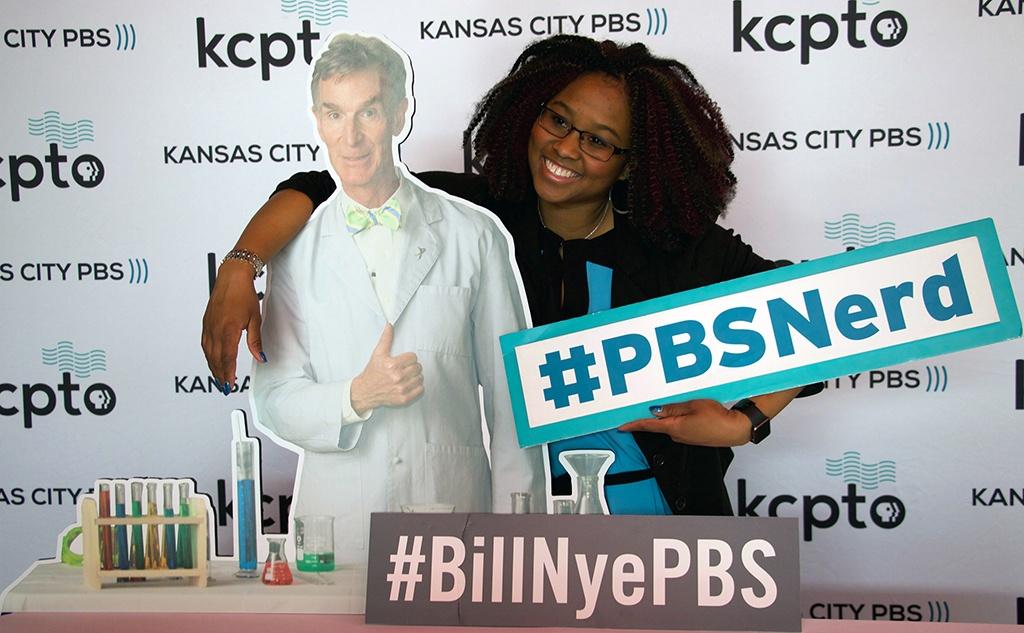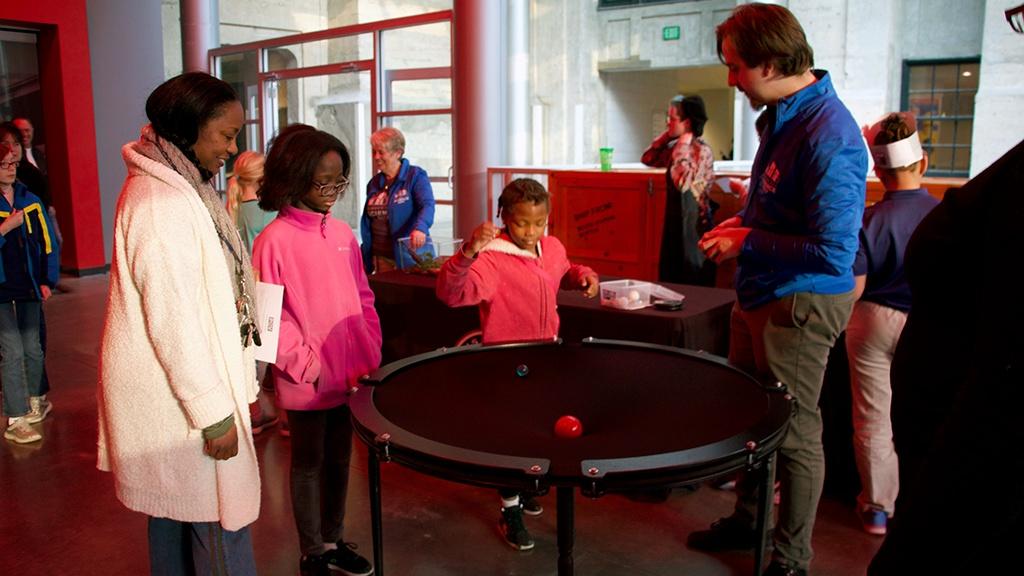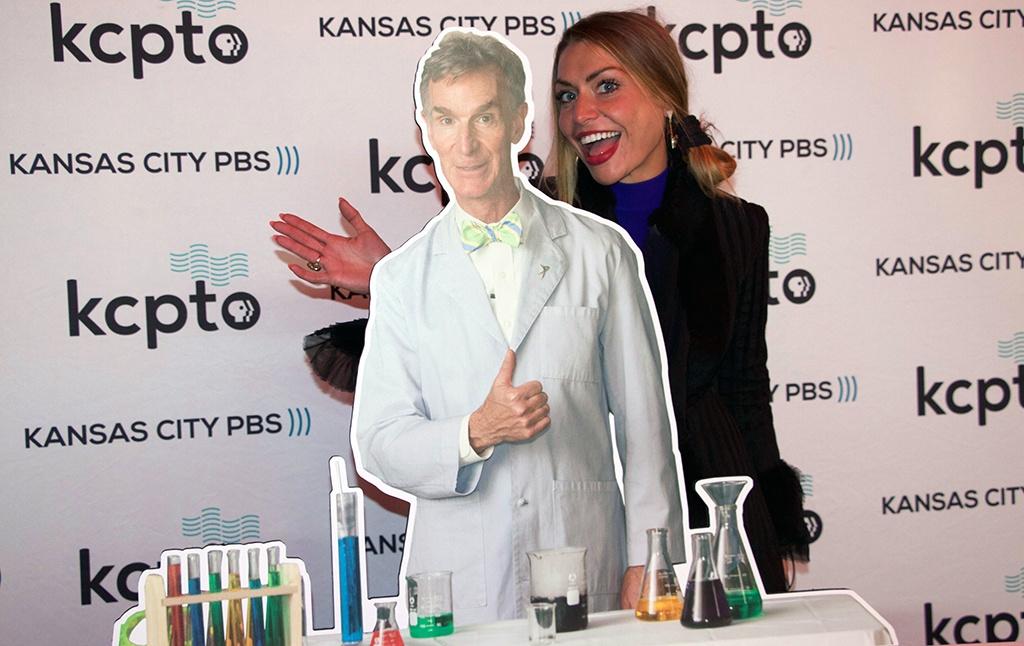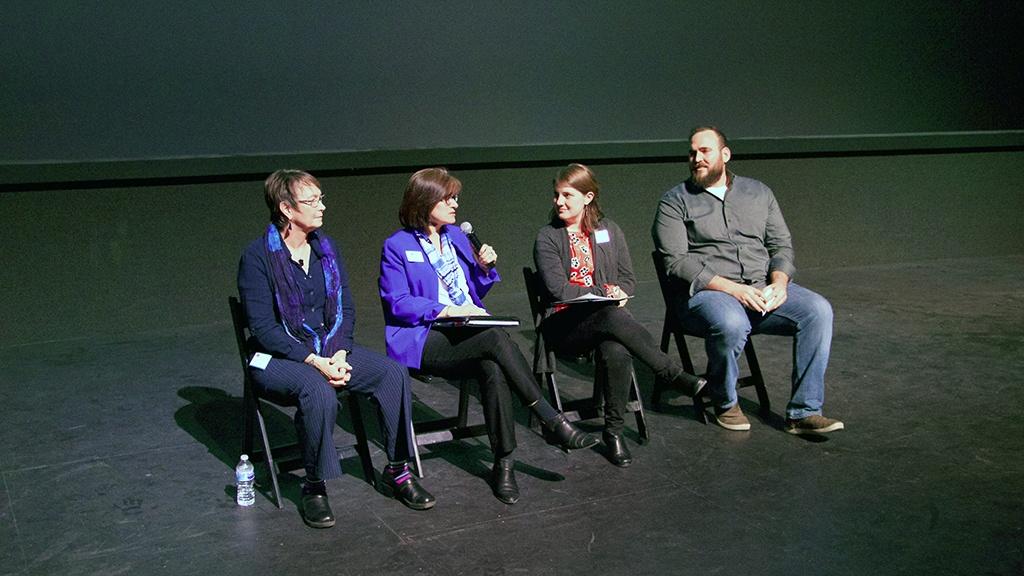It’s been more than 18 years since the PBS Kids series Bill Nye: The Science Guy was part of our educational line-up on Kansas City PBS. Thanks to a new documentary Nye will again appear on our air, this time to educate the public about anti-scientific thinking.
Bill Nye: Science Guy follows Nye as he leads The Planetary Society as it prepares to launch the first ever Solar Sail, a small spacecraft that is propelled by energy from photons harnessed by the large reflective “sails.” The documentary also shows how since leaving children’s television Nye uses his visibility to speak on the importance of science and challenge climate change denial and creationism.
Jason Sussberg, one of the film’s directors, talked to us about his hopes for the film and what it was like to get to know the man behind the lab coat.
Bill Nye: Science Guy kicks off the 31st season of the documentary series POVat 9 p.m. on April 18 on KCPT.
KCPT: I read that you watched Bill Nye: The Science Guy as many of us did — in the classroom. What was his impact on you?
Sussberg: I had a teacher during my freshman year of high school who would occasionally bust out Bill Nye even though we were 14 years old and a little advanced for it. The thing that really made an impression on me wasn't the science necessarily, but was the form of the show. The show was kind of like Pee-wee's Playhouse and was really hilarious and well edited, and very strange. It reminded me of MTV Sports, which I was watching a lot of at the time. So what made an impression on me was how well-crafted and how entertaining it was.
What was it like getting to know him and making a film that humanizes him and shows him warts and all?
One of the things that my dad would say was don't worship people and don't have heroes — which I think is the opposite on an upbringing that people would hear in a normal American family. I looked up to Bill and am a huge fan of his, but we went into this very professionally. We knew that we were going to have to humanize him. Our very first meeting we said that we were going show him warts and all, a portrait of himself that he might be uncomfortable with... and he understood immediately that what we were going for was to dive into who he is.
What were some of the highlights and challenges of the making this film?
Well one of the highlights was going to Greenland. That was a once-in-a-lifetime opportunity. We got to go hangout with research scientists in this really extraordinary place watching them extract ice cores out of the ground. It was a really unbelievable experience to see the evidence of climate change first hand... As for challenges, the whole 3-year journey of [making the film] was a challenge. We're happy with how it turned out, but it wasn't an easy movie because there was no inherent story. It was a biography of somebody's life in a time when science is under attack. So it was a struggle to come up with our arc.
What do you hope people will take away from the film?
I hope that they take science literacy seriously — and this is something that we're working on as a country. Science, technology, engineering and math is taking a bludgeoning, and critically we need to double down in these fields. So I hope people see a scarier side... I think we're witnessing it right now with the election of Trump and the anti-science people he's put in charge from the EPA Administrator on down.These are people who have a total disregard for evidence and the scientific world view…. But then also I hope people get to know Bill, and get to see America's science educator in a personal light. And I hope people laugh. We wanted to make this an entertaining movie, because Bill is a really entertaining person.
Documenting America’s Science Guy: Four Questions with Filmmaker Jason Sussberg
by
Published on
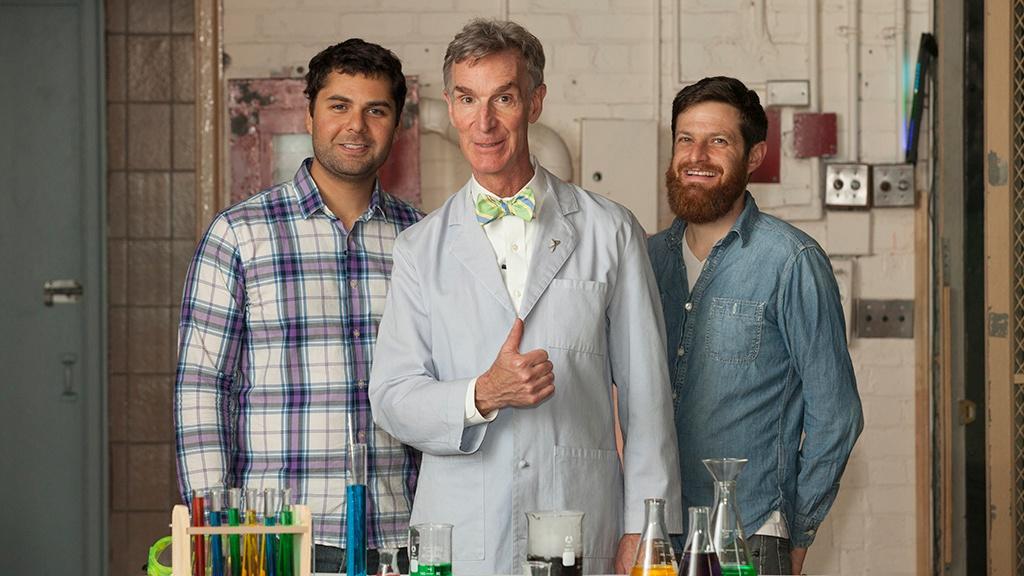
Filmmakers David Alvarado and Jason Sussberg (left) with Bill Nye.




